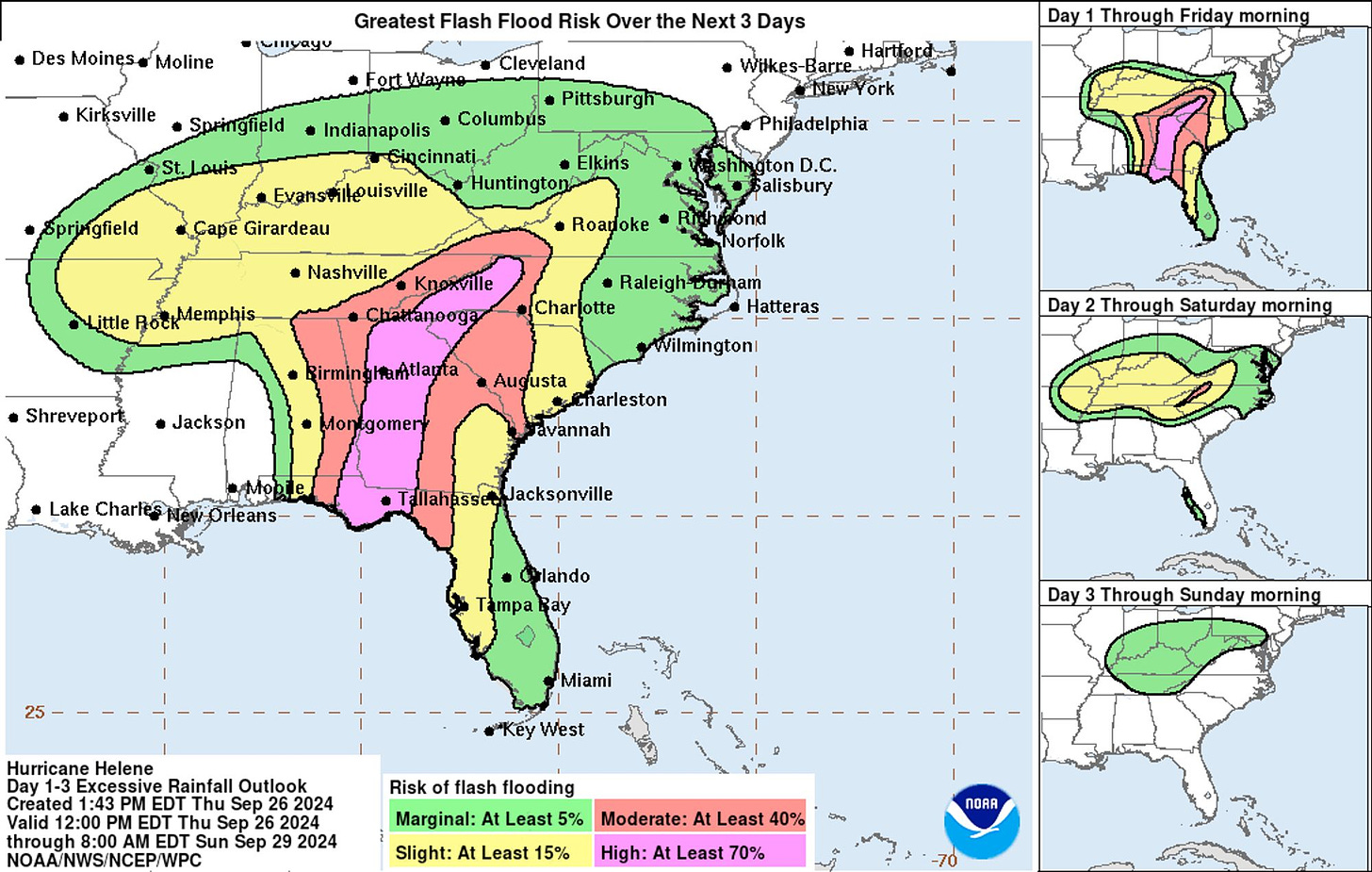You will not escape the climate crisis
Posted on 7 October 2024 by Guest Author
This is a re-post from the Climate Brink by Andrew Dessler
On Bluesky, it was pointed out that Asheville, NC was recently listed as a place to go to avoid the climate crisis.
Mother Nature sent a “letter to the editor” indicating that she didn’t agree:
Flood waters from the French Broad River cover the River Arts District in Asheville, North Carolina on Saturday, September 28, 2024. Jacob Biba/Citizen Times. Link
While climate change does not cause hurricanes, we are certain it makes them more destructive. Humans have increased sea level, leading to more destructive storm surge, and a warmer atmosphere produces more rain.
Many people don’t understand how this will affect them. They think it’s a long-term problem where small impacts accumulate over decades, eventually leading to significant consequences far in the future.
In reality, though, these increases in storm surge and rainfall push our physical environment beyond thresholds that infrastructure was designed to handle.
As a result, the impacts of climate change are non-linear: they are zero until you cross the threshold and then, suddenly, you are wiped out. This leads to headlines like this:
Read more about the non-linearity of climate impacts here. The upshot is that, with climate change, you’re fine until you’re not.
Even if you were not directly impacted by Helene, you may still be affected by the downstream consequences.
For example, I’ve written extensively about homeowner’s insurance, and how it’s the canary in the climate impact coal mine. We have systematically underpriced climate risk in this country and Helene will be another step down the road to a national reckoning.
At best, insurance rates will go up. At worst, insurers will pull out of markets across the southeast U.S. In the absolute worst case, if the insurance industry can’t pay all of the claims, then society (e.g., you and me) will be on the hook to bail it out.
Here’s an impact I didn’t know about until a few days ago: Helene’s impact on the production of computer chips:
From Material World:
“Here’s something scary,” says one veteran of the sector. “If you flew over the two mines in Spruce Pine with a crop duster loaded with a very particular powder, you could end the world’s production of semiconductors and solar panels within six months.” No high-purity quartz means no Czochralski crucibles, which means no monocrystalline silicon wafers, which means, well, the end of computer chip manufacture as we know it.
We would adapt; find a new process or an alternative substance. But it would be a grisly few years. Perhaps this is why those who work in high-purity quartz are so jumpy. Perhaps that’s why the man who passed on that scary thought exercise insisted that I didn’t print the type of powder that would play such havoc with the processing of those mines in North Carolina, which quietly serve this tiny but pivotal role in the functioning of the modern world.
I don’t know if this facility was damaged by Helene’s flooding, but let’s hope not.
We live in a globally integrated world full of potential single-point failures. Many of them you’ve never even heard of. Helene shows how climate change is threatening them — and, by extension, you.
Please spare a moment to appreciate the forecasters at the National Weather Service. They absolutely nailed the Helene forecast.

Forecast from early Thursday, before landfall
Hamilton Nolan’s substack has a lot of great things about insurance. For example, read this and then subscribe.
Susan Crawford’s Moving Day substack is one of the best ones on the looming insurance crisis. If you want to see what’s coming in the insurance space, subscribe to it.
Read more here about Spruce Pine and the potential silicon crisis.
In Rolling Stone, Jeff Goodell writes about the Age of Climate Migration and also says Asheville is a good place to move to avoid climate impacts.
